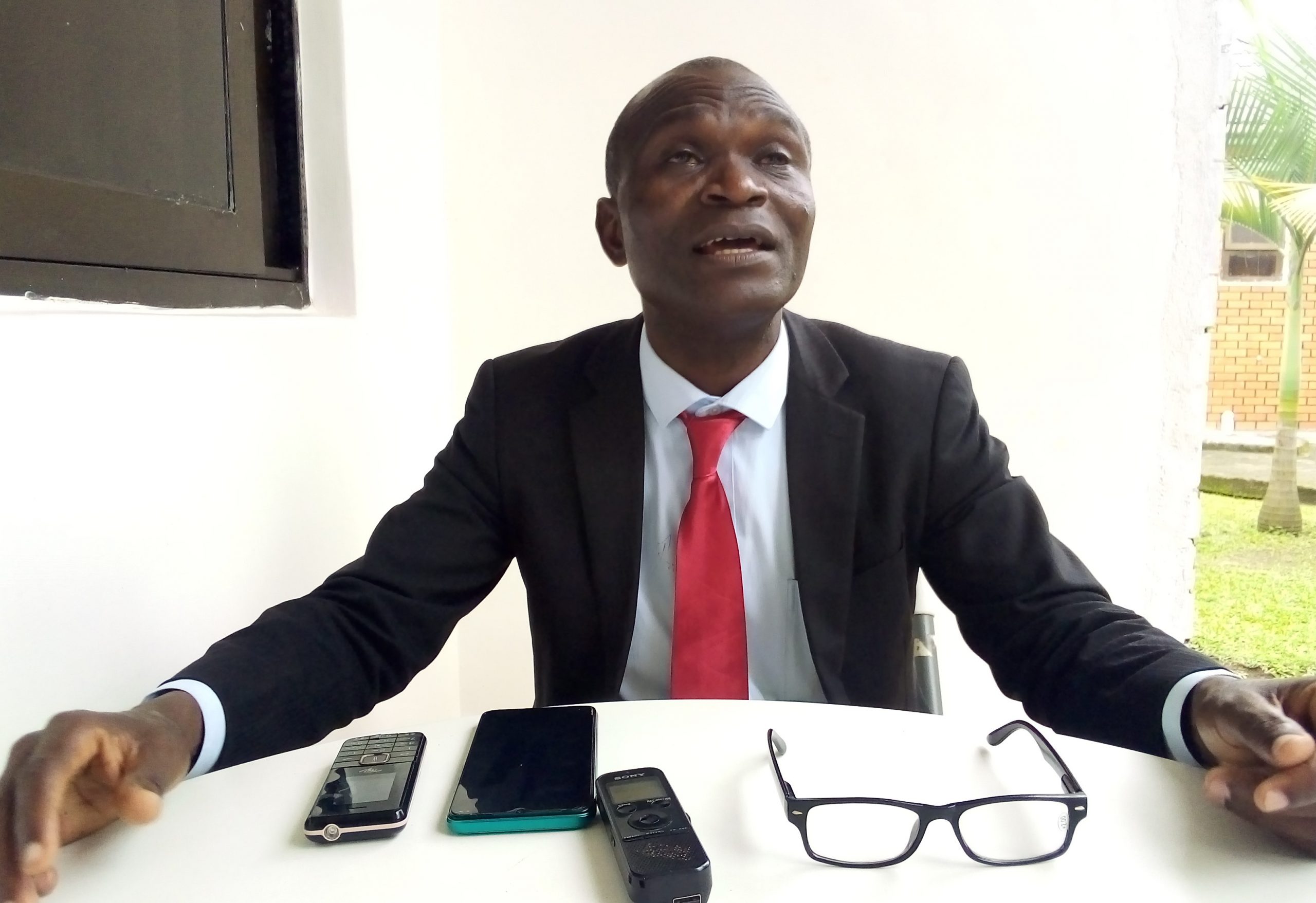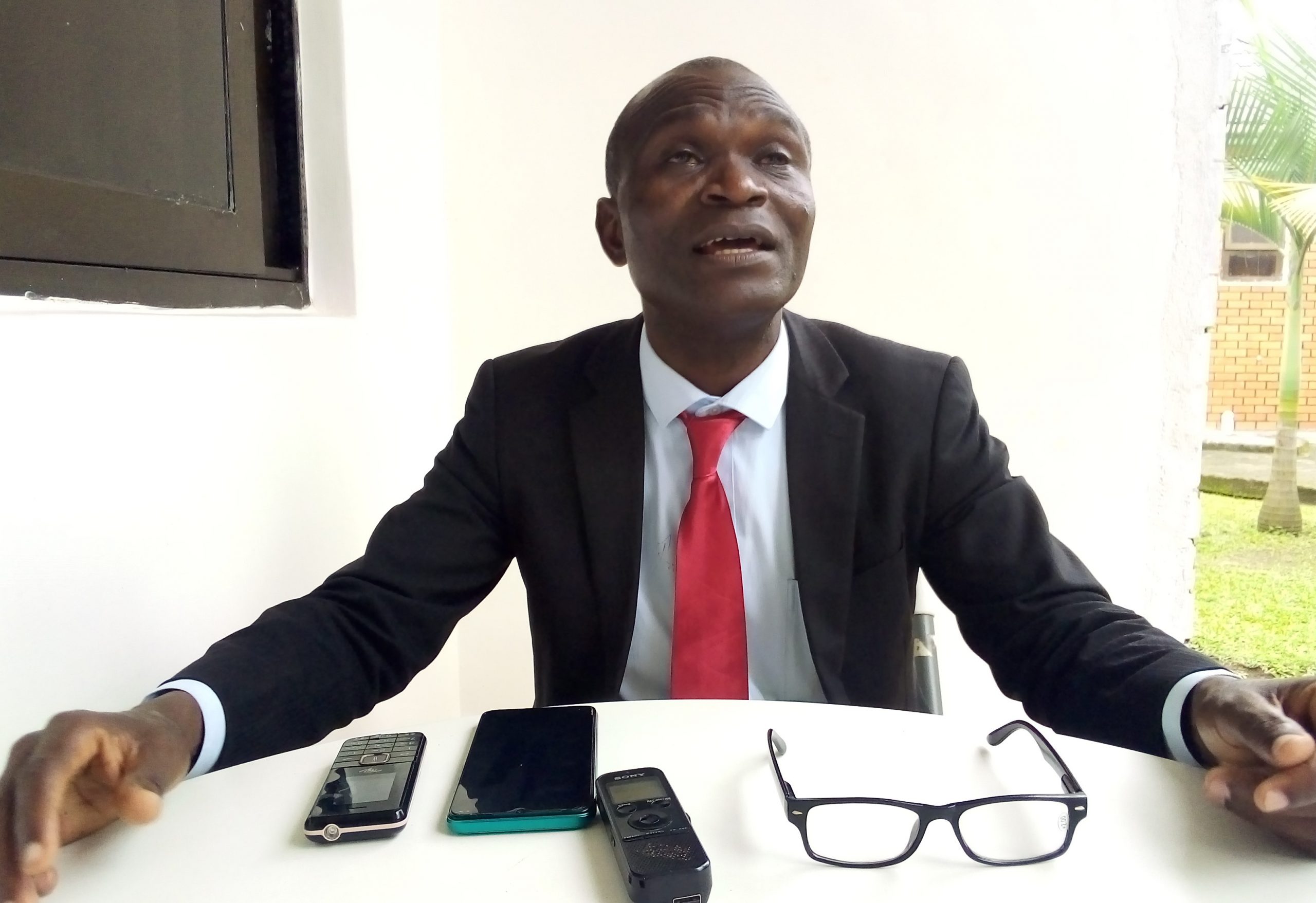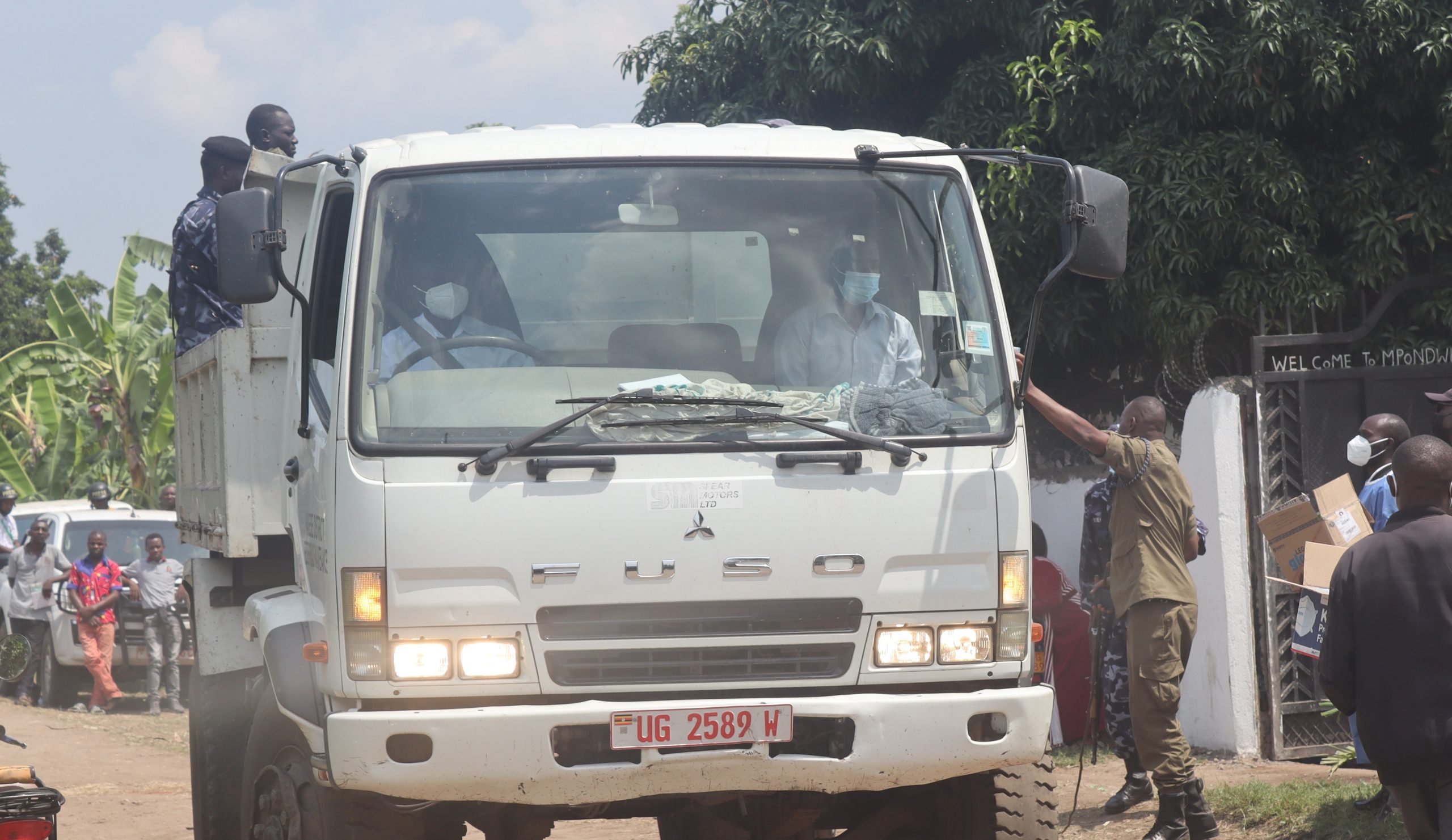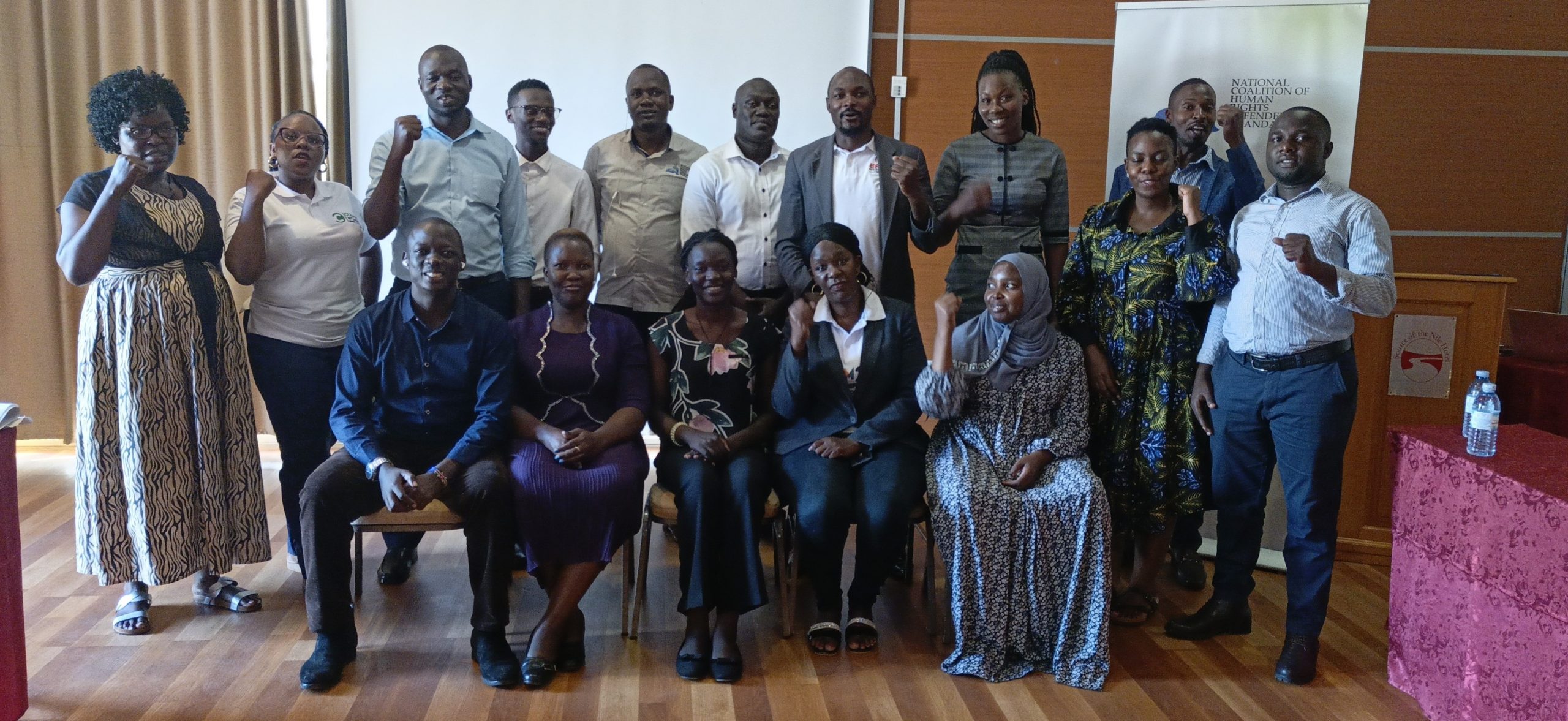
Human Rights Defenders in Rwenzori Want Gov’t Support

Rev. Tibamwenda-Smith-in-a-recent-interview-with-Basaijja-Idd-a-journalist-working-with-URN
By Basaijja Idd
Human Rights Defenders-HRDs in the Rwenzori Sub Region have cried out for government support for their activities.
The HRDs say that they play a very critical role in advancing the rule of law but they are faced with several difficulties including the lack of transport and cooperation from local authorities, which hinders their work.
They are also concerned that local governments never consider them a key partner in development work and are always left out of local government activities.
Rev. Tibamwenda Smith from the Matongo Lost Land Recovery Families Organisation-MLRO, argues that HRDs are doing a significant job to champion the rule of law, especially in areas where government institutions like police stations and courts are absent but often limited by challenges.
“We do a lot of work including linking victims to the system of justice and therefore its important that government recognizes our contributions.” Tibamwenda says
Mugara Tom from Kasese Women Network-KWN, wants the government to come out and designate the HRDs as part of its auxiliary systems, arguing that they are usually the first point of contact whenever there are legal issues in communities.
Kabagenyi, Sarah the Executive Direct for Bundibugyo Women with Disabilities Living argues that HRDs working with marginalized groups are finding it difficult to advocate for the right of their members without financial support and clear knowledge of the law.
If given logistics she believes she can do more for the most marginalised communities in her area.
Mugisa Robert , the head of programs at Human Rights Centre Uganda-HRCU, said that ignoring or underplaying the vital contribution of HRDs increases the risks to them and their work.
He notes that because of their work, HRDs indeed need logistical support from the government since they aid the judicial system.
Mugisa however asks HDR to remain devoted to pushing for economic, social, cultural, civil, political, and other rights for individuals and society in a collective way.
He says that the HRCU with its partners are continuing to lobby support for HRDs but also train them on how they can use digital platforms to easily perform.
HRCU held a two-days capacity-building workshop for HRDs in the Rwenzori region on concepts of human rights, resilience, and effective advocacy in a challenging context.
The meeting for the 20 selected HRD’s was held in Bundibugyo district.



